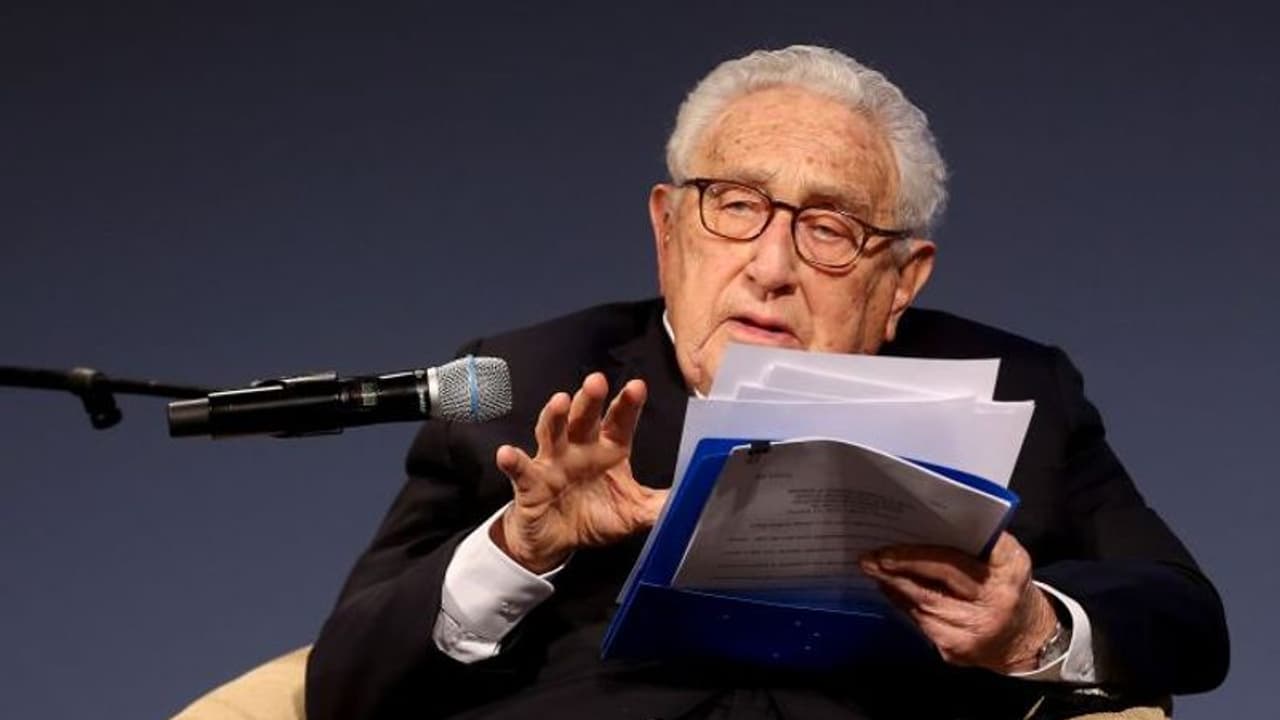Henry Kissinger played a significant role in shaping US foreign policy during the latter half of the 20th century, serving as the Secretary of State under Presidents Nixon and Ford. Despite his complex legacy and criticism for policies during the Vietnam War, Kissinger remained an influential figure in American diplomacy
German-born American statesman and political scientist Henry Kissinger, who played a prominent role in shaping US foreign policy during the latter half of the 20th century, has passed away at the age of 100. The former US Secretary of State served as America's top diplomat and national security adviser during the Nixon and Ford administrations. The former diplomat died at his home in Connecticut.

Henry Kissinger was a complex and influential figure in American foreign policy, known for his realpolitik approach and his role in shaping diplomatic relations during a crucial period of the Cold War.
Birth and Early Life
He was born on May 27, 1923, in Fürth, Germany. Kissinger's family fled Nazi persecution and emigrated to the United States in 1938.
Education
Kissinger earned his bachelor's degree in 1950 and a master's degree in 1952, both in political science from Harvard University. He later earned his Ph.D. in 1954.
Academic Career
After completing his education, Kissinger became a professor of government and international affairs at Harvard.
Government Service
Kissinger joined the US National Security Council in 1961 during the presidency of John F Kennedy and continued to serve under President Lyndon B Johnson. He became the US Secretary of State under Presidents Richard Nixon and Gerald Ford, serving from 1973 to 1977.
Diplomacy
During the Vietnam war, Kissinger played a crucial role in the negotiations to end the fighting, leading to the Paris Peace Accords in 1973. He was a key figure in the policy of détente, easing tensions between the United States and the erstwhile Soviet Union (now Russia).
Foreign Policy Achievements
Kissinger played a pivotal role in the secret negotiations that led to the normalization of diplomatic relations between the United States and China in 1972. He was involved in shuttle diplomacy in the Middle East, contributing to the disengagement agreements between Israel and its neighbours after the Yom Kippur War in 1973.
Awards and Recognition
Kissinger was awarded the Nobel Peace Prize in 1973 for his role in the Vietnam War negotiations, jointly with Le Duc Tho.
Criticism and Controversies
Kissinger's policies during the Vietnam War, including the secret bombing of Cambodia, have been criticized for their humanitarian impact. His realpolitik approach and support for authoritarian regimes have also drawn criticism for neglecting human rights concerns. Kissinger faced severe condemnation from critics who accused him of prioritizing the Cold War rivalry with the Soviet Union over human rights and supporting oppressive regimes globally, including the regime led by Augusto Pinochet in Chile.
Later Career
Kissinger has authored numerous books on foreign policy, diplomacy, and international relations. After leaving government service, he worked as a consultant and adviser. Celebrating his centenary in May, Kissinger remained active well into his later years. His continued engagement included a surprise visit to Beijing in July for a meeting with Chinese President Xi Jinping.
